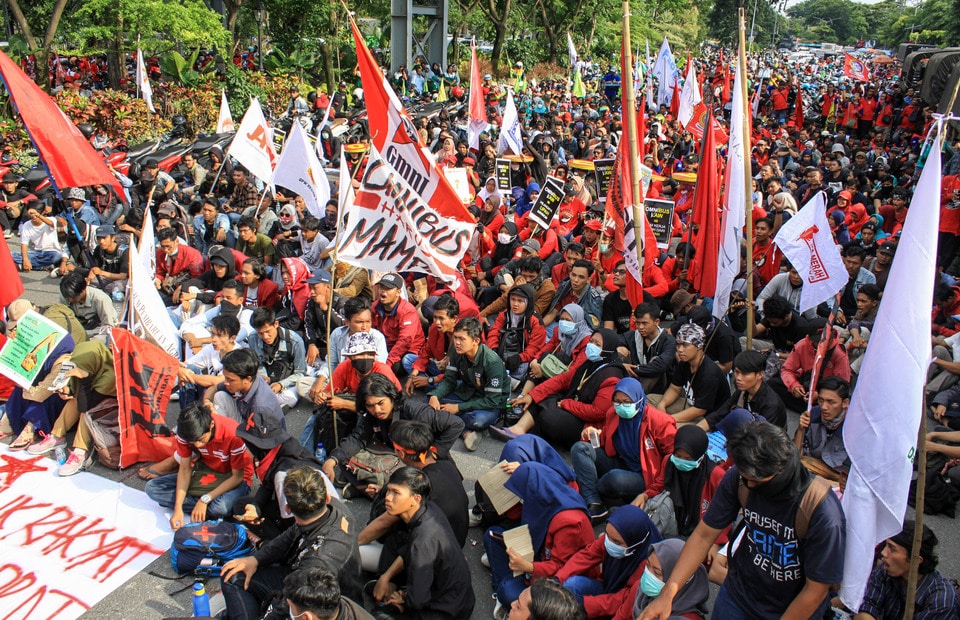GABY RUSLI WRITES — Protests have erupted in cities across Indonesia ever since a new labor law was passed on October 5th, 2020. This new piece of legislation, known as the “omnibus law,” significantly affects Indonesian worker rights.
The omnibus law was passed in an attempt to create more jobs that would loosen labor and environmental regulations. In effect, it would expose workers and the environment to exploitation, leaving them extremely vulnerable and placing power into the hands of corporations. Some of the negative changes that the bill would make: extending the hours for contracted workers who were previously limited to work up to 2 years, with a single extension of one more year at the most; no mandatory time off; and no repercussions for companies that choose not to pay their workers the agreed wages.
The omnibus bill might arguably provide relief for the Indonesian economy, strained under the coronavirus pandemic, but it is at best a temporary solution that would pull Indonesia ten steps back and potentially leave the country worse off. How? Indonesian society has deep socioeconomic class disparities- the majority of the country is in poverty, or trying to achieve economic security, while a small percentage controls the nation’s wealth-not unlike the United States. Indonesia’s middle class is much smaller than that of the United States, which makes up just over 52 percent of the American population. The omnibus bill will ultimately widen socioeconomic class disparities, empowering the 1% and creating bigger barriers for others to climb the socioeconomic ladder.
Multiple exchanges with my relatives and friends from Indonesia reveal mixed reactions. Older and more conservative people in support of the omnibus law argue that the violent protests that resulted in the destruction of public properties, along with the burning of houses, were an excuse to riot- masked as genuine outrage at injustice. Younger people seem to be supporting the protests and the workers, believing that such legislation is simply unacceptable.
But the protests -turned- violent- riots seem to have distracted people from the real issue at hand: the unfair changes the omnibus law is making. Peaceful protests in Indonesia may not be enough to persuade government officials to overturn or reverse legislation, but is violence worth getting the message across? That’s the ongoing dilemma.

